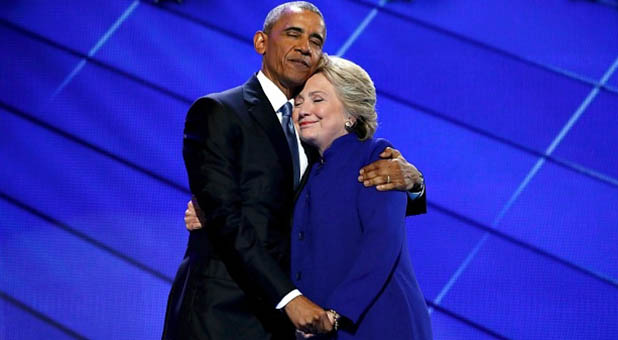Federal Court: Department of State Must Release Clinton’s Benghazi Emails
In the nearly five years since the Sept. 13, 2012, terrorist attacks on the U.S. Mission in Benghazi, Libya, the government watchdog group Judicial Watch has forced the Department of State to release hundreds of documents related to the attacks and the government’s response.
Friday, U.S. District Judge Amy Berman Jackson ordered the release of a few more—specifically, “eight identical paragraphs” of previously redacted information contained in two of former Secretary of State Hillary Clinton’s emails. These emails relate to phone calls made by President Barack Obama to Egyptian and Lybian leaders immediately following the terrorist attacks.
Jackson reviewed the documents in private and determined they had been improperly withheld by the government in its response to an earlier Freedom of Information Act lawsuit filed by Judicial Watch. The government’s lawyers had concluded the information was part of a “deliberative process” that made them exempt from FOIA.
“[T]he two records, even if just barely predecisional, are not deliberative,” she wrote in her opinion. “[The State Department] has pointed to very little to support its characterization of these two records as deliberative, and the Court’s in camera review of the documents reveals that they do not fall within that category.”
Full disclosure of those two emails will likely reveal what Clinton and Obama knew about the terrorist attacks, and more importantly, when they knew it. The Department of State is now asking for a reconsideration of Jackson’s decision because the documents should have been deemed classified, and that they were incorrectly marked due to an internal processing mistake.
If deemed classified, the information would be exempt from production under FOIA. But unless Jackson has a security clearance we don’t know about, this could create even bigger problems, not just for the government, but for the court.
Judicial Watch has argued this is instead a thinly veiled attempt by the Department of State to protect Clinton and the agency. In an interview with an FBI employee, federal investigators were told Patrick Kennedy, a top official at the State Department, had pressured the bureau to keep the former secretary of state’s emails classified, and that the State Department’s Office of Legal Counsel interfered with the FOIA processing by instructing reviewers to use the “deliberative process” exemption instead of the classified information exemption.
Its argument states:
An agency’s deliberate withholding of a FOIA claim, either to gain a tactical advantage or, as appears to be the case here, to protect the agency’s interests and those of its former head, is “a motive undoubtedly inconsistent with FOIA’s broad remedial purpose …” It “counsels denying the government’s request.”
Judicial Watch President Tom Fitton said he wonders if President Donald Trump knows his administration is still providing cover for Clinton and Obama.
“An extraordinary court ruling that could result in key answers about the Benghazi outrage is being opposed by the Trump administration,” he said. “This may well be an example of the ‘Deep State’ trying to get away with a cover up. If so, then the Trump administration must put a stop to it.” {eoa}
















































